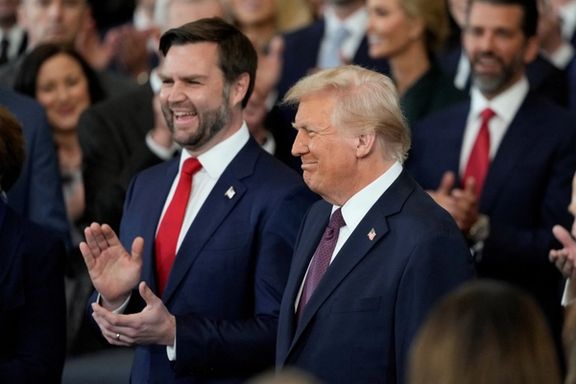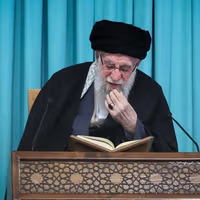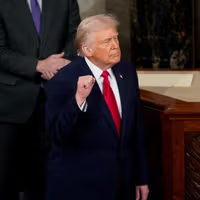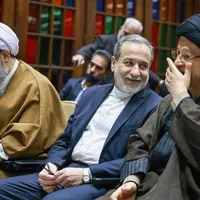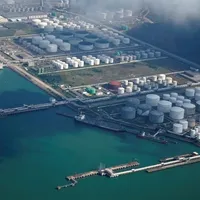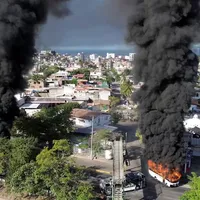Tehran's media landscape showcased the sharp divide, with various factions and their associated outlets voicing opinions on engaging in talks with the US. Optimistic reformists, such as those at Jamaran News and Ham Mihan newspaper, speculating that "Trump might visit Iran to mend ties broken since 1979," while hardliners like the ultraconservative Kayhan daily wrote, "Trump can only come to Tehran to face punishment for ordering the killing of IRGC top commander General Qassem Soleimani."
A few voices sought a middle ground between the extremes.
The pro-reform outlet Fararu questioned whether Trump can put an end to the deadlock between Tehran and Washington, outlining what it sees as three potential paths for Trump in his second term as US president: "diplomacy, war, or simply ignoring Iran."
The outlet also addressed the "maximum pressure” policy that Trump implemented during his first term (2017-2021), noting that "the policy did not achieve the results Trump expected."
Fararu predicted that "although Trump's America will continue to support Israel against Hamas and Hezbollah, yet it is unlikely that he would plunge America into a war with Iran."
The site also opined that "diplomacy can create a historic opportunity for resolving the chronic deadlock between Iran and the United States."
Meanwhile, an aide to Vice President Mohammad Javad Zarif, Sasan Karimi, argued, "Tehran should try to use Trump's Iran policy in a way that serves its own interests rather than allowing Israel to exploit the situation."
Karimi echoed the stance of President Masoud Pezeshkian and Foreign Minister Araghchi, saying, "Basically, we have no problem with furthering honorable negotiations." However, he overlooked Araghchi's earlier clarification that Iran is unwilling to discuss anything beyond the nuclear issue in negotiations with the West.
Karimi remarked, "Now Iran knows Trump has some experience with how Iran operates. The situation is more transparent now." He also quoted Zarif, who stated, "Iran cannot expect much from Europeans. They can blind you, but they cannot cure your eyes."
Karimi emphasized that "the Americans are the main party to any negotiations, while Europeans can only play a supporting role." In a subtle critique of Iran's inaction and lost opportunities, he added, "We should not continue as Cold War soldiers," likely alluding to the country's persistent confrontation with the US and reliance on Russia and China.
On Monday, the Javan daily, linked to the Islamic Revolutionary Guard Corps (IRGC), released a collage showcasing political figures known for their public support of direct talks with the US, including presidential aide Ali Abdolalizadeh, Vice President Zarif, former reformist government spokesman Ali Rabiei, and centrist politician Mohammad Hashemi.
The publication conveyed a message to these individuals, writing: "There is only one condition for direct negotiations with the Trump administration: Be prepared for execution if you do not reach an agreement within two months!"
The daily also accused the four politicians of "bribing the US," and, in a pointed reference to Zarif, declared, "Pezeshkian's vice president in particular should picture the noose around their neck on the gallows."
The IRGC-affiliated publication further warned, "Even if you send the best messages to America and employ the most skilled negotiators, you must understand that the United States has no intention of lifting the sanctions it has imposed on Iran."
